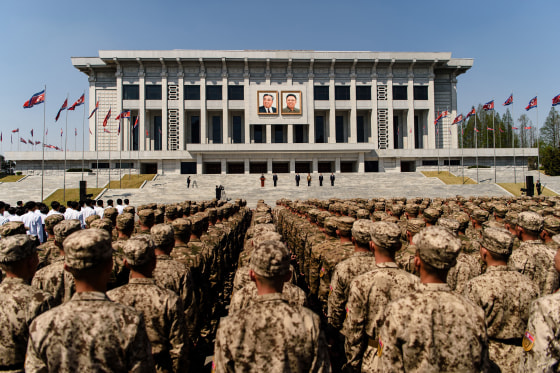Kim Jong Un Declares Military Partnership in Action

In a stunning development, North Korea has officially confirmed that it has deployed troops to fight alongside Russian forces in Ukraine, specifically in the contested Kursk region. The announcement came via a statement from the Central Military Commission of the ruling Workers’ Party, as reported by North Korea’s Korean Central News Agency (KCNA).
The statement quoted North Korean leader Kim Jong Un as saying the soldiers were sent to “annihilate and wipe out the Ukrainian neo-Nazi occupiers,” a claim echoing Moscow’s justification for its invasion. The troops reportedly played a role in helping Russia reclaim territory held by Ukraine.
Strategic Treaty and Military Solidarity
Kim referred to the deployment as part of a mutual defence treaty with Russia, formalized in a strategic partnership agreement signed last June. Russia’s President Vladimir Putin responded by expressing personal gratitude and calling North Korea’s actions “heroic,” citing “a sense of justice and comradeship.”
Putin’s spokesman Dmitry Peskov confirmed that under the treaty, both nations are committed to providing immediate assistance to each other in times of war.
Heavy Casualties Among North Korean Forces
The battlefield contribution by North Korean troops has come at a high cost. According to South Korea’s National Intelligence Service (NIS), approximately 300 North Korean soldiers have been killed and around 2,700 wounded. Ukrainian officials claim total casualties could be as high as 4,000. In contrast, U.S. intelligence estimates place the number closer to 1,200.
Early in the conflict, North Korean units reportedly suffered major losses due to a lack of modern equipment and experience in drone warfare. However, sources indicate that the troops quickly adapted and later contributed effectively to ground operations in Kursk.
Ukraine and U.S. Respond to Escalation
Ukrainian President Volodymyr Zelenskyy previously noted that about 14,000 North Korean fighters had been deployed against Ukrainian forces, with 3,000 acting as reinforcements.
Ukraine’s General Staff refuted Russian claims that Kursk was fully recaptured, saying defensive operations are ongoing. Meanwhile, the U.S. State Department condemned the alliance, calling North Korea’s involvement a “perpetuation” of Russia’s unlawful war and urging an end to Moscow’s military support for Pyongyang.
Symbolism and Legacy in Pyongyang
In recognition of the fallen, Kim Jong Un announced plans to erect a monument in Pyongyang to honor North Korean troops who died in Ukraine. He said “flowers praying for immortality” would be placed before tombstones, confirming casualties and portraying them as national heroes.
Global Implications
The North Korean confirmation marks a major shift in global military alignments, pulling Pyongyang directly into the ongoing Russia-Ukraine war. Analysts warn that this may escalate international tensions, particularly as the U.S., South Korea, and NATO allies reassess strategies in the face of a growing Eurasian military bloc.
Ukrainian President Volodymyr Zelenskyy put the number of killed or wounded North Koreans at 4,000, while the United States estimated a lower figure of about 1,200 casualties.
North Korea’s statement follows Russia’s chief of staff, Valery Gerasimov, on Saturday hailing the “heroism” of the North Korean soldiers, who he said “provided significant assistance in defeating the group of Ukrainian armed forces”, while reporting to Putin that Kursk had been regained from Ukrainian forces.
Ukraine’s General Staff quickly countered, saying that its defensive operation in certain areas in Kursk was continuing.
The US State Department said in a statement on Sunday evening that North Korea and other “third countries” had “perpetuated” Russia’s war on Ukraine and that it must end, as should Moscow’s support for Pyongyang.
For more context on Russia’s tactical moves, see our report on Russia’s air assault on Kharkiv and the political implications of Putin’s Victory Day ceasefire proposal.
Sources: KCNA, Yonhap, Reuters, US State Dept., Ukrainian General Staff, South Korea NIS









